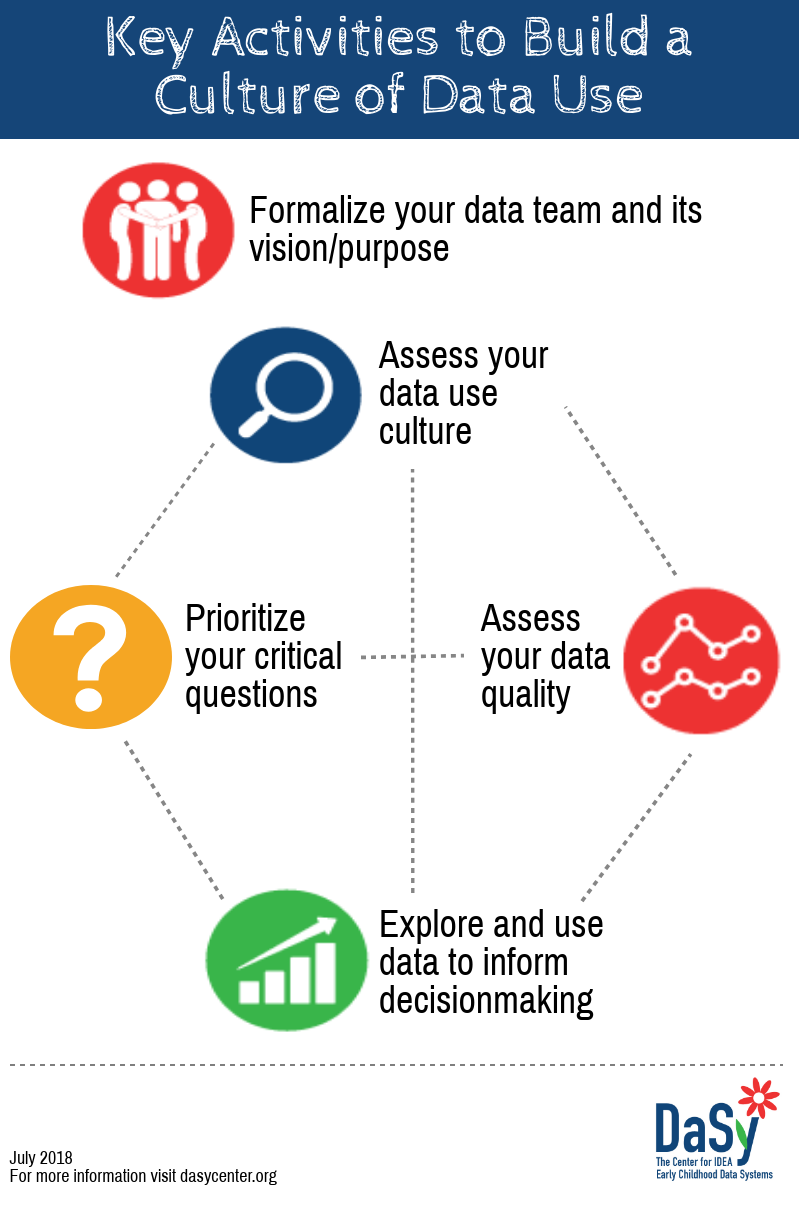The DaSy Center created this toolkit to help create a culture of data use at the local and state levels. The scope and complexity of the data that IDEA Part C and Part B 619 programs collect have significantly increased in the 30 years since these programs began. Programs now have unprecedented opportunities to use data to inform administrative operations, reporting, monitoring, continuous program improvement, and state policy decisions. This Data Culture Toolkit will assist you in navigating these complexities in a manner that fosters multilevel collaborative use of data. As agencies use the data culture tools contained here, they will be able to 1) increase the participation and focus of their data teams and 2) review and make improvements to data quality and the processes used to gather, monitor, analyze, and use data.
Why is a culture of data use important?
- Professionals need data to make informed decisions that support positive outcomes for children with disabilities and their families.
- To be used effectively, data must be embedded in the culture of early intervention and preschool special education.
- A data culture promotes use of data to inform decisions about program operations, accountability, and improvement.
What is included in this toolkit and how can state and local staff use it?
Download infographic or text-only.

This Data Culture Toolkit is a collection of resources, considerations, and facilitator tips to help state and local staffs create and effectively support the conditions for a culture of data use, including promoting effective data teams. Links to resources and download instruction for infographics are included throughout the toolkit. The toolkit is organized around the key steps to building a culture of data use in a state or local program: teaming for data use, assessing your data culture prioritizing questions, and assessing data quality. The toolkit also includes data culture resources.
The following are a few examples of how state or local staff can use the toolkit to build a culture of data use.
- Improve our use of data when planning and making program decisions.
- Learn how to develop a sustainable process for using data to inform decisions.
- Build a culture of data use at the state or local level.
- Build our team’s capacity to effectively use data.
The tiles are logically sequenced to address state, local, and team needs, but it is not necessary to use or complete them sequentially. You can use any step/tile as needed, working on steps/tiles in any order. However, starting with Step 1 (Formalize your data team and its vision/purpose) is recommended to ensure that you have the foundation to support effective data use. Resources are tagged as relevant for state or local, as appropriate.
Published August 2017.

